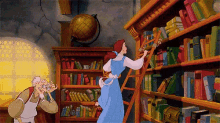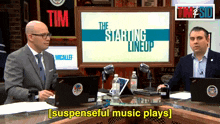Imagine a contemporary Frankenstein that explores not only supernatural creatures but also delves into ethical dilemmas, scientific inquiry, and controversial themes. In the world of Young Adult literature, where romance and supernatural beings frequently dominate, finding a book that tackles profound ethical questions and scientific exploration is a rare treasure. "The Confession of Hemingway Jones" by Kathleen Hannon stands out as such a gem, pushing the boundaries of YA literature and compelling readers to confront dark and provocative themes.
The Confession of Hemingway Jones follows Hemingway Jones, a 17-year-old Lifebank cryogenic research center intern. After his father dies in a car accident, Hemingway uses an experimental procedure to revive him. However, the procedure has strange effects on his father, making him less human.
When the billionaire owner of the lab wants to attempt the experiment again to conquer death, Hemingway faces a difficult choice: recreate the experiment to save his father or risk imprisonment.
"The Confession of Hemingway Jones" has recently garnered widespread critical acclaim, and for good reason. The book has been praised by both The Independent Book Review and Kirkus Reviews, who have named it one of the most exciting releases of the fall. These publications have lauded the book's gripping narrative, well-drawn characters, and insightful commentary on the human condition. 
Let us slide into your dms 🥰
Get notified of top trending articles like this one every week! (we won't spam you)Inspiration from a Literary Pioneer
The origin of "The Confession of Hemingway Jones" traces back to a decade ago, when Kathleen noticed the proliferation of vampire and werewolf stories captivating the YA audience. This observation sparked a question: why had Mary Shelley's "Frankenstein" not received a modern YA reimagining?
"I wondered why no one tackled "Frankenstein" when Shelley's novel absolutely dwarfs Stoker in terms of literary achievement. Her book was the genesis of science fiction as a literary genre – isn't that amazing? A woman started sci-fi. "
While studying Shelley's work, the aim wasn't just to appreciate it, but to grasp the literary techniques she employed to explore the concept of life. During this process, it became evident that Dr. Frankenstein's pursuit of life went beyond human beings and encompassed plants and animals, highlighting the interdependence of all living things.
Having a deep passion for botany and a fondness for multiple pets, Kathleen was captivated by this perspective on life and the environment. She was determined to capture the essence of Shelley's insights with her own thoughts.
“I wanted to capture that with a Southern twist: we are decimating the natural environment in the South not just with climate change but with invasive species. Kudzu is a great example; that's why there are vines of it twisting throughout the chapters.”

Take the Quiz: Which Popular YA Novel Series Should I Read Next?
Find out your next great read after this quiz!
A Personal Journey of Resilience
Katheen’s personal experiences have heavily influenced the creation of this book. A challenging time in her life, characterized by a painful divorce amidst the pandemic, has been the driving force behind the novel's deep and meaningful themes. It has reminded us that what we consider imaginary or unreal can be closer to our reality than we believe.
"At some time in your life, there's going to be an asteroid out there with your name on it, and it's going to decimate something priceless in your eyes. And it's outrageous that it's happening, but it is happening, and the journey is going to be very long and painful. That's how Hemingway opens."
The unique perspective in the storytelling of "The Confession of Hemingway Jones" comes from Kathleen's 20-year experience as a film development executive. Her Hollywood background played a crucial role in the frenetic pacing and wild twists of the story. The author began their career in the West Coast book department of the William Morris Agency, where she read multiple novels weekly to help her boss, VP Irene Webb, decipher what would translate into a film.
On their first day, four of the top ten grossing films of the week were books Irene had sold. Kathleen learned a lot from Irene's experiences.
 Vincentas Liskauskas, Unsplash
Vincentas Liskauskas, Unsplash
Contributing to a Larger Conversation
The exploration of AI and bioethics in the novel "The Confession of Hemingway Jones" is very timely. With AI and biotechnology challenging our understanding of humanity, this novel contributes to the larger conversation about the ethical implications of these technologies. It emphasizes the need to consider the ethical aspects of these technologies that are changing the world as we know it.
“I turned to a friend, one of the Directors of Oak Ridge National Laboratory, to ask his opinion. He said, "You've found a way to discuss the possibility of defying death without actually landing specifically on one solution or the other under scrutiny – cloning, AI, etc. And the conversation is only just beginning. Why would you stop?"
Advice for Aspiring Authors
For budding authors facing personal challenges, Kathleen offers valuable advice: embrace the silver linings in your clouds. Emotional struggles can inspire creativity and self-discovery, making the writing journey as therapeutic as the finished work is rewarding.
" Know the rules of the genre and decide which rules you will break. You can't break all of them, and you can't cherish all of them, either, if you want to be successful.”

What's Next?
The future of this skilled author is uncertain yet full of exciting possibilities.
In "The Confession of Hemingway Jones," we find a novel and a journey of inspiration, resilience, and empowerment. This work is a door that opens to a world of limitless possibilities, encouraging us to explore the depths of human potential and ethical boundaries. It leaves us yearning for Kathleen's next literary gem, eager to embark on another journey of self-discovery and enlightenment.







.jpg)
.jpg)










